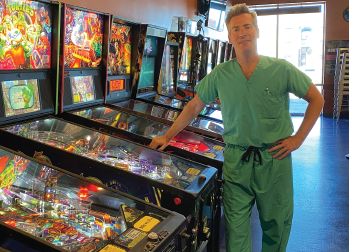Will there be a lost generation of otolaryngology residents, learners, and junior-to-mid-career attendings?


Will there be a lost generation of otolaryngology residents, learners, and junior-to-mid-career attendings?

The health effects of climate change are an increasingly urgent public health crisis that are infrequently recognized within the surgical community.

A culture of mentoring can go a long way by providing guidance, improving job performance, and giving mentees the feeling of belonging.

The COVID-19 pandemic effectively eliminated the option of group gatherings and compelled academic program directors to turn to a virtual format for their grand rounds.

Paul Burkhart, DO, is a partner physician at Ohio ENT & Allergy Physicians in Columbus, Ohio. But he’s also the owner of Level One Bar and Arcade, a pinball and video game emporium and bar.

Recent advances in intraoperative, near-infrared imaging technology may offer effective tools for surgeons to help avoid negative outcomes.

If you’re an otolaryngology resident considering a private practice career, how do you decide what the value of a fellowship is to you?
Significant aerosol levels were generated during cadaveric simulation of mastoidectomy, and aerosol spikes were appreciated during cochlear implantation in live patients.
Hypopharyngeal-proximal reflux episodes occur less frequently than gastroesophageal reflux disease episodes after meals and at night, and future therapies for LPR patients should take the HEMII-pH profile into consideration.
CDA awardees achieve higher academic success than academic otolaryngologists in general, but female CDA recipients lag behind their male colleagues.